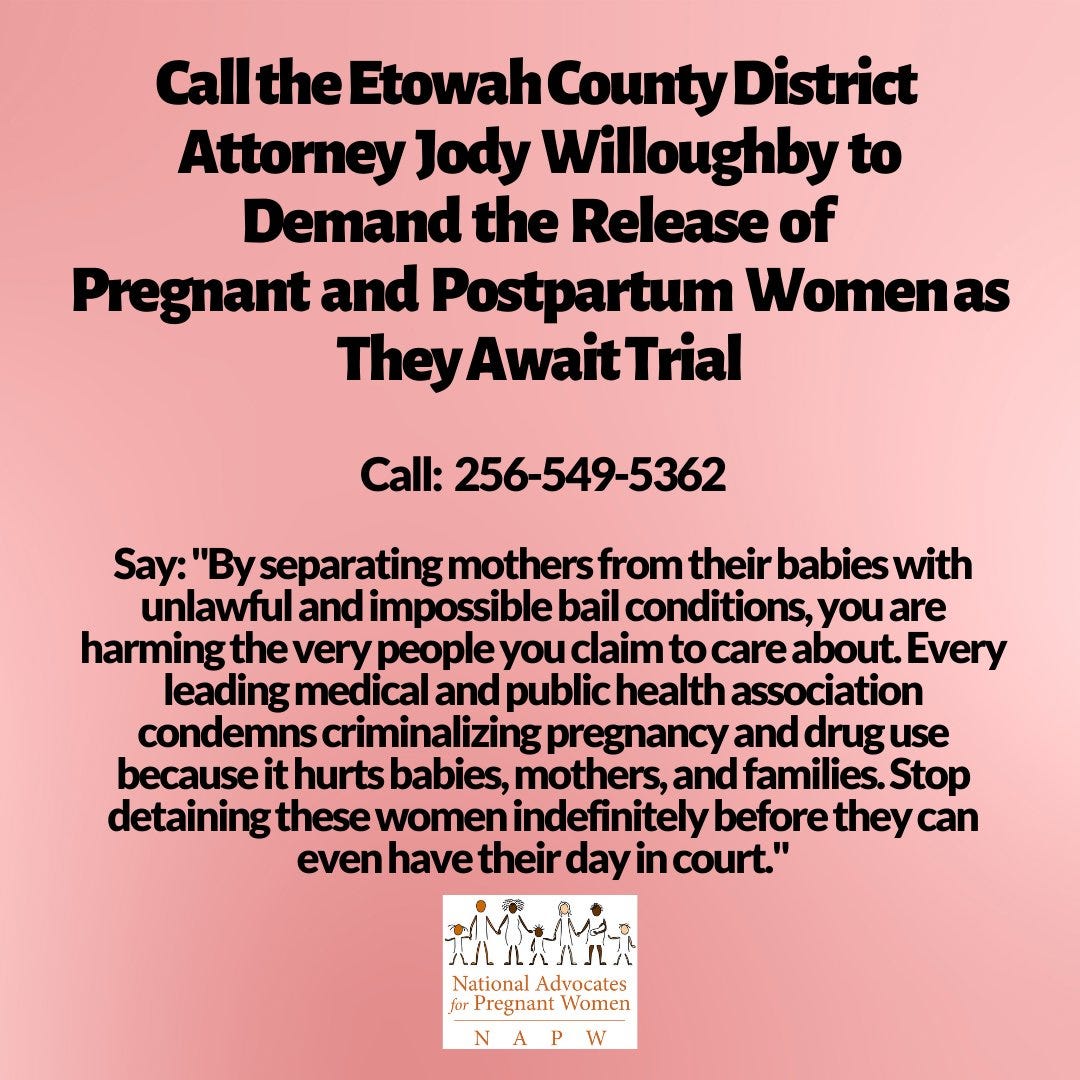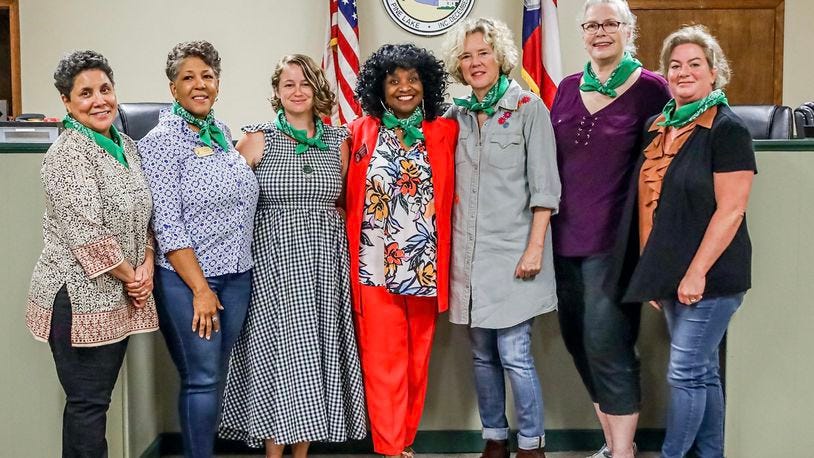In the states…
We finally have a decision from the Michigan Supreme Court! They ruled yesterday that the Board of Canvassers has to certify the proposal for a constitutional amendment that would protect abortion rights—regardless of ‘typos’. Which means voters will get to decide this November, as it should be. To find out more about the Reproductive Freedom for All (RFFA) campaign, go here.
South Carolina’s abortion ban continues to be debated: Yesterday, lawmakers rejected the ban advanced by a Senate committee that didn’t have exceptions for rape or incest, and instead moved forward with an amended version. The new bill says two doctors have to confirm that a person’s life is in danger in order for them to have an abortion, and that rape and incest victims can only receive care up until 12 weeks—and only if the doctor reports the abortion to the county sheriff, and provides the police with fetal DNA.
Meanwhile, OBGYNs in South Carolina are so worried about the law, they’re preemptively consulting criminal defense attorneys. One doctor told Blue Ridge Public Radio,
“To have to have conversations with lawyers where you’re weighing the possibility of being labeled or targeted as a felon for providing care that yesterday was acceptable and legal, it’s just hard to align those things in your mind.”
Some really awful stuff is happening in Alabama: A jail in Etowah County has been holding multiple pregnant women, some for months, in what they say is a move to ‘protect’ their fetuses. National Advocates for Pregnant Women say that 12 women, who have been accused of using drugs, are being held with unconstitutional bail requirements: $10,000 cash bond and in-patient drug treatment, even if they don’t need it or if beds aren’t available. Some of the women have just had newborns, who have been separated from them; all don’t have access to adequate medical or mental health care.
One woman, Ashley Banks was forced to sleep on the jail floor for months while pregnant. Banks—accused of using marijuana—had to be taken to the ER twice for severe vaginal bleeding. Yet she was still forced to remain jailed because the court-ordered rehab program rejected her because Banks wasn’t addicted to drugs.
If you are able, please donate to NAPW’s legal fund for these women here, and call the district attorney to demand their release:
Idaho lawmakers are asking a federal judge to reconsider his decision blocking enforcement of the state’s abortion ban in medical emergencies; lawyers representing North Dakota have asked a judge there to do the same, and reverse his decision blocking the state’s abortion ban.
And in Ohio, a judge says he needs more time to decide whether or not to pause the state’s 6-week abortion ban.
Arizona’s Republican candidate for governor, Kari Lake, still refuses to clarify her abortion position—even as doctors speak out to pressure her to do so. OBGYN Dr. Tori Fewell says, “Pregnancy is inherently dangerous and doctors need to know what the laws are in order to protect our patient's health and their lives. Kari Lake’s refusal to clearly state where she stands on abortion will put patients at risk.”
A Texas woman has shared her experience trying to get care in the state after her pregnancy was found to have severe fetal abnormalities that were putting her health and life at risk. "I've never felt more betrayed by a place I was once so proud to be from," she says.
FiveThirtyEight looks at the state of abortion rights in Pennsylvania and how things could change with the coming election:
In Washington, dozens of doctors and reproductive health care providers wrote an op-ed warning voters about anti-choice Republican Senate candidate Tiffany Smiley. Smiley has said she is “100% pro-life” and supports the extreme ban in Texas, but claims abortion access is already settled in Washington:
“If we’ve learned one thing from the events of the past few months, it’s that we can’t take reproductive rights for granted—when it comes to abortion, nothing is ‘settled.’ The only way to protect abortion access in Washington state is to elect public servants who support the right to choose.”
A tiny town in Georgia where all the political leaders are women—from the mayor to the police chief—has passed a resolution to decriminalize abortion. From The Atlanta-Journal Constitution:
“The sweeping local resolution not only bans local funds from going toward recording, investigating or helping with the prosecution of the so-called ‘heartbeat law,’ it also instructs the city’s four police officers not to make arrests, investigate, provide information about or even record reports of miscarriage or abortion.”
These are the leaders of Pine Lake, and I had to share the picture because it’s such a welcome change from the awful images of all-white old men passing laws about our bodies.
In the nation…
When I saw this headline from The Washington Post, “The White House’s plan for protecting abortion rights,” I thought finally! Then I went to read the piece—an interview with the executive director of the White House Gender Policy Council, Jennifer Klein—and was really disappointed. Just a lot more of nothing new, and claims that there’s only so much the executive branch can do. I’m over it, to be honest.
What’s even more frustrating is that Biden is out there campaigning on abortion and calling for people to vote—but we fucking already voted. We need politicians to do something, now.
The Guardian found that Ginni Thomas—wife of Supreme Court Justice and disgusting sexual harasser Clarence Thomas—had links to the anti-abortion groups that lobbied to overturn Roe: “51% of the parties who filed amicus briefs calling for an end to a federal abortion right have political connections to Ginni Thomas.”
POLITICO gets into “Why Democrats are Winning the Culture War”; The Nation examines how medical students are faring in a post-Roe world; and Axios notes that abortion providers in pro-choice states are so overwhelmed, that abortions are happening later and later as women wait for care.
This is important: CNBC points out that because of the way that Plan B—the morning-after pill—is labeled, women may have a harder time obtaining the medication. The FDA’s label—crafted when the medication was made available over-the-counter—reads that the medication “prevent a fertilized egg from attaching to the womb,” even though recent studies show that’s not true. And because conservatives are trying to define anything that stops a fertilized egg from attaching to the uterus as an abortifacient, the medication is at risk. It’s just a matter of if, not when, they come for birth control.
Thanks as always for the support, and send tips on stories to jessica@substack.com.
Listen to this episode with a 7-day free trial
Subscribe to Abortion, Every Day to listen to this post and get 7 days of free access to the full post archives.
















